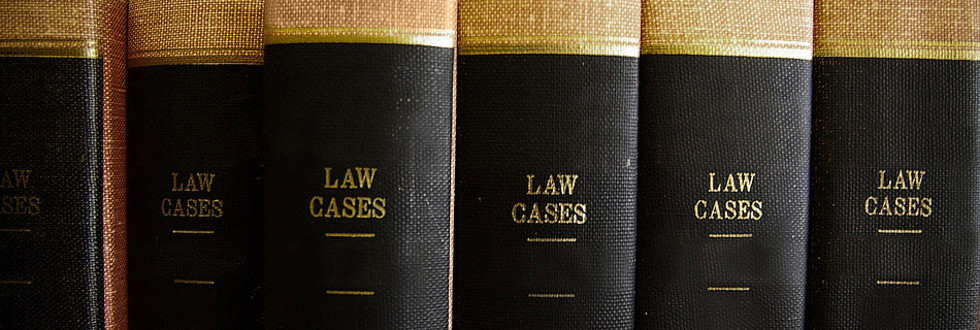Publication
The concept of the state migration policy of the Russian Federation for 2019-2025.
Presidential Decree No. 622 of 31 October 2018 approved the Concept of the state migration policy of the Russian Federation for 2019 - 2025. The...
Supporting your business in Russia
At present, in connection with increase in inflow of foreign capital into Russia more often start to appear the questions how it is the most...
Maintenance of the investment project in the Irkutsk region.
The counsel of Hinkels Alexander Koltkov has acted as the consultant for support of the ambitious investment project in Irkutsk region. One of the...
A little about the taxation of "expats".
In Russia, as in many other countries, " Expatriates " (or abbreviated: " expats ") are foreign employees , who work abroad under the contract.
Working in Russia, expats, under certain conditions, are required to report on their income and pay the income tax. However, not all of them do this.
To be specific, almost everyone except the citizens of neighboring countries. The income of the immigrants from the CIS is uncontrolled (with rare exceptions), so people as a rule are not enough interested in their taxes. Europeans, because of their obedience to the law, always report on their income. However, it is not only in compliance with the law. Expats from Europe mostly work officially - under the contract with the Russian or foreign organization.
Russian employer reports on the income of foreign workers and pays for them all taxes just like for the Russian employees. Therefore, when the income of a foreigner - is the only his Russian salary, so there is no need to worry about taxes. Everything will be made for him by his employer. If a foreigner who works in Russia receives his remuneration abroad, he should report on his taxes by his own. In any case, for Europeans it’s more difficult to avoid the declaring of their income than, for example, for workers from Tajikistan, as at home sooner or later they will be asked to report on their income and on their taxes which should have been paid during the period of working abroad. So, after declaration of all their foreign earnings, law-abiding expatriates submit their tax return to the Russian tax authorities.
The first thing that truly surprises the foreigners, is the requirement to confirm the amount of days in Russia, i.e. to confirm the status of a «tax resident». In fact, this requirement is more than absurd. Because in accordance with the law, if the taxpayer had been in Russia for less than 183 days, i.e. he had not acquired the status of a tax resident, so his foreign income is not taxable. In other words, the foreign income may be taxed at a rate of either 13% or not taxed at all. And there is no third variant. Why it’s necessary to confirm the number of days spent in Russia? This question has no answer yet. Often tax inspectors rely on the provisions of the tax law, according to which tax residents and non-residents are taxed at different tax rates – 13 % and 30 %, respectively. Therefore, knowing the number of days they can correctly implement the appropriate tax rate. For some reason they completely forget that this provision applies only to Russian income, and to foreign earnings has nothing to do. In addition, the tax authorities require to prove the origin of the foreign income referred to in the declaration, that is, to provide some kind of Certificate from foreign source of their income, with its translation into Russian. Only in this case, the foreigner will be awarded the great honor of being taxed by the Russian tax. It would seem to be the opposite: the income earned only need to be properly declared. And if the tax authorities have any doubt about the fullness of declared income, they are eligible to hold any sort of examination or investigation. For example, to visit the foreign employer, ask him what they want - paper and certificates, if necessary, with translation of them into Russian. But, at their own expense(we mean tax authorities).
The taxpayer is required to declare only what he earned, without any further evidence. Especially if these acknowledgments require additional costs. In an effort of a foreigner to pay in Russia the so-called "the world's lowest tax" is seen almost tax evasion. However, from what tax – it is difficult to understand... By the way, the "lowest" tax is debatable, too. In a detailed study of the principles of taxation in the same Europe or the U.S., it turns out that our tax is not the lowest. For example , the amounts from which we usually pay 13% in many countries are not taxed at all, and it’s without mentioning the significant tax deductions and benefits of family declarations, and other nuances, significantly reducing the tax burden on citizens. And regarding the taxation in the oil-producing countries – we, the owners of the richest mineral resources can only dream of it... But that is another topic for discussion .
Self-Employed Tax Consultant
To be specific, almost everyone except the citizens of neighboring countries. The income of the immigrants from the CIS is uncontrolled (with rare exceptions), so people as a rule are not enough interested in their taxes. Europeans, because of their obedience to the law, always report on their income. However, it is not only in compliance with the law. Expats from Europe mostly work officially - under the contract with the Russian or foreign organization.
Russian employer reports on the income of foreign workers and pays for them all taxes just like for the Russian employees. Therefore, when the income of a foreigner - is the only his Russian salary, so there is no need to worry about taxes. Everything will be made for him by his employer. If a foreigner who works in Russia receives his remuneration abroad, he should report on his taxes by his own. In any case, for Europeans it’s more difficult to avoid the declaring of their income than, for example, for workers from Tajikistan, as at home sooner or later they will be asked to report on their income and on their taxes which should have been paid during the period of working abroad. So, after declaration of all their foreign earnings, law-abiding expatriates submit their tax return to the Russian tax authorities.
The first thing that truly surprises the foreigners, is the requirement to confirm the amount of days in Russia, i.e. to confirm the status of a «tax resident». In fact, this requirement is more than absurd. Because in accordance with the law, if the taxpayer had been in Russia for less than 183 days, i.e. he had not acquired the status of a tax resident, so his foreign income is not taxable. In other words, the foreign income may be taxed at a rate of either 13% or not taxed at all. And there is no third variant. Why it’s necessary to confirm the number of days spent in Russia? This question has no answer yet. Often tax inspectors rely on the provisions of the tax law, according to which tax residents and non-residents are taxed at different tax rates – 13 % and 30 %, respectively. Therefore, knowing the number of days they can correctly implement the appropriate tax rate. For some reason they completely forget that this provision applies only to Russian income, and to foreign earnings has nothing to do. In addition, the tax authorities require to prove the origin of the foreign income referred to in the declaration, that is, to provide some kind of Certificate from foreign source of their income, with its translation into Russian. Only in this case, the foreigner will be awarded the great honor of being taxed by the Russian tax. It would seem to be the opposite: the income earned only need to be properly declared. And if the tax authorities have any doubt about the fullness of declared income, they are eligible to hold any sort of examination or investigation. For example, to visit the foreign employer, ask him what they want - paper and certificates, if necessary, with translation of them into Russian. But, at their own expense(we mean tax authorities).
The taxpayer is required to declare only what he earned, without any further evidence. Especially if these acknowledgments require additional costs. In an effort of a foreigner to pay in Russia the so-called "the world's lowest tax" is seen almost tax evasion. However, from what tax – it is difficult to understand... By the way, the "lowest" tax is debatable, too. In a detailed study of the principles of taxation in the same Europe or the U.S., it turns out that our tax is not the lowest. For example , the amounts from which we usually pay 13% in many countries are not taxed at all, and it’s without mentioning the significant tax deductions and benefits of family declarations, and other nuances, significantly reducing the tax burden on citizens. And regarding the taxation in the oil-producing countries – we, the owners of the richest mineral resources can only dream of it... But that is another topic for discussion .
Self-Employed Tax Consultant

